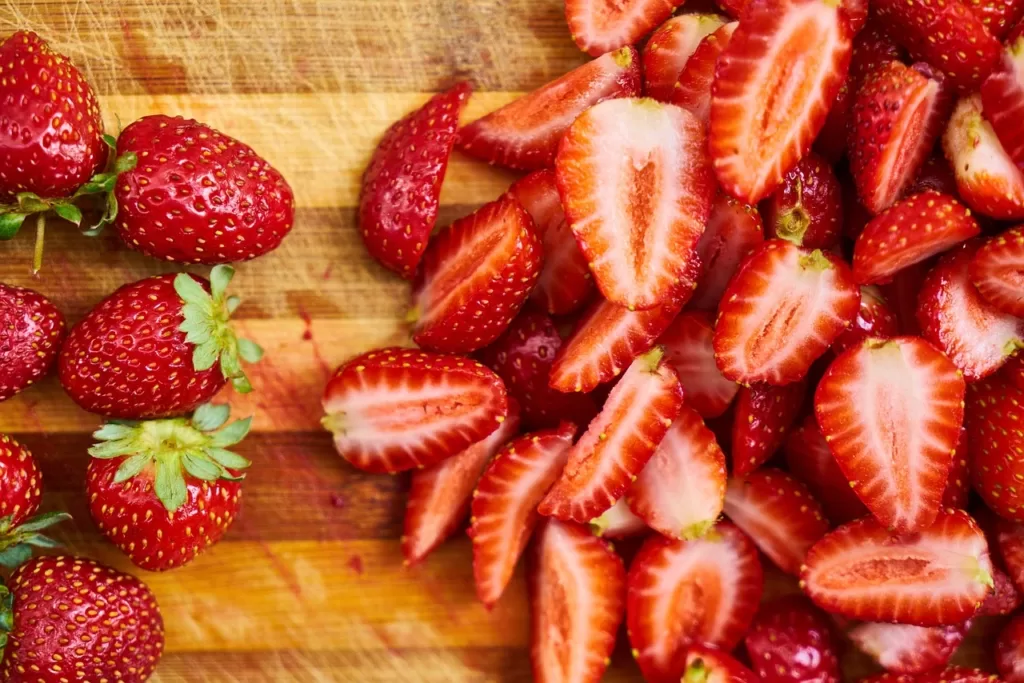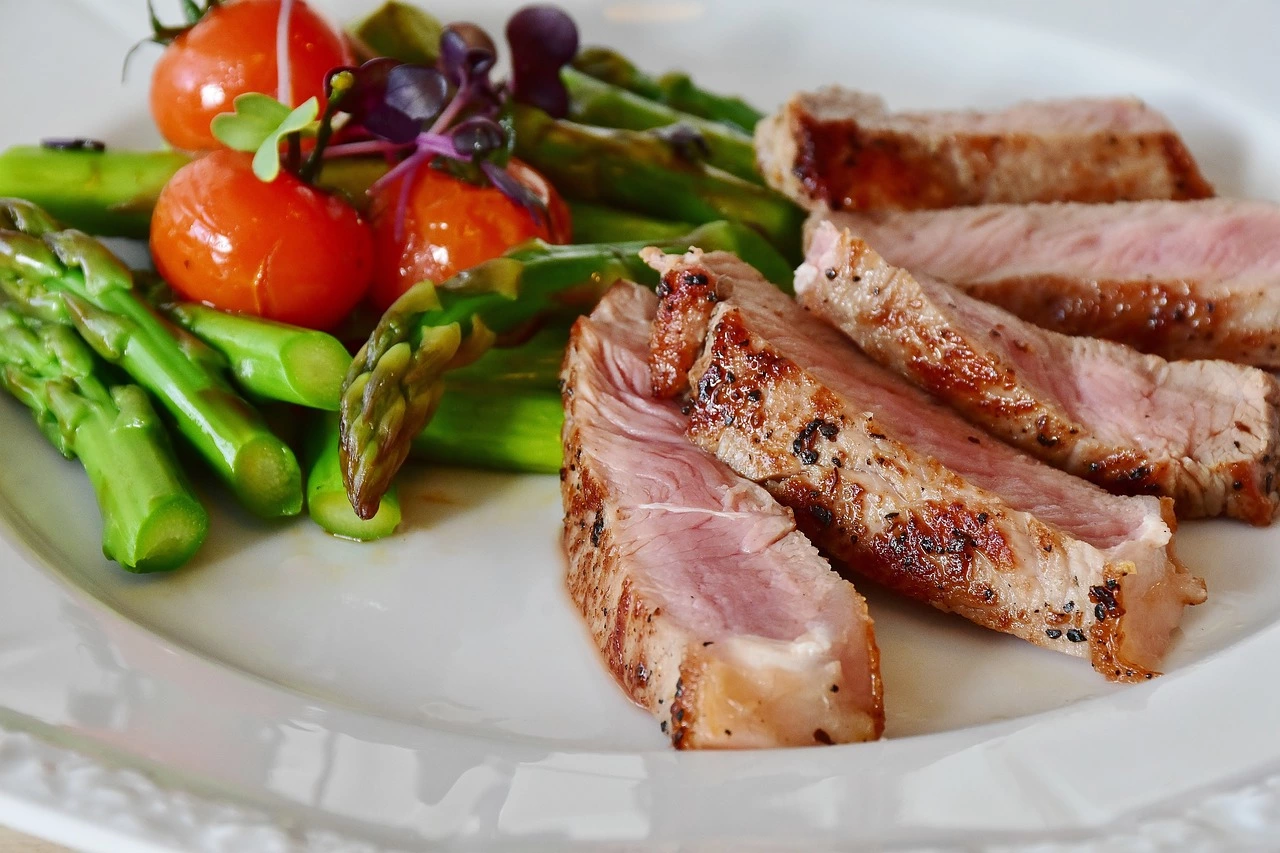Introduction
In a world where fast food and sugary snacks are readily available, adopting a healthy eating lifestyle has become more crucial than ever. This article aims to highlight the significance of nourishing your body with wholesome foods and provides an array of delicious and nutritious recipes and tips to make healthy eating an enjoyable journey.
Table of Contents
The Significance of Adopting a Healthy Eating Lifestyle
In our fast-paced lives, we often neglect the importance of fueling our bodies with nutrient-rich foods. However, healthy eating is not just a trend; it’s a lifestyle choice that can have a profound impact on our overall well-being. By choosing the right foods, you provide your body with the necessary vitamins, minerals, and energy to function optimally.
Benefits of Nourishing Your Body with Wholesome Foods
Embracing a healthy eating lifestyle offers numerous benefits. From maintaining a healthy weight to reducing the risk of chronic diseases, such as heart disease and diabetes, the impact of your dietary choices cannot be overstated. Additionally, consuming nutrient-dense foods can enhance your mood, boost your energy levels, and improve your skin’s appearance.
Overview of the Article’s Focus on Delicious and Nutritious Recipes and Tips
This article will guide you through the essentials of healthy eating, providing you with practical tips and mouthwatering recipes for breakfast, lunch, dinner, and snacking. By the end of this article, you’ll be equipped with the knowledge and inspiration to embark on a journey towards a more vibrant and nourished lifestyle.

Image by Arek Socha from Pixabay
Understanding the Basics of Healthy Eating
Balanced Diet Essentials
A balanced diet involves consuming a variety of foods from all the major food groups. This includes lean proteins, whole grains, fruits, vegetables, and healthy fats. By diversifying your food intake, you ensure that your body receives a wide range of nutrients necessary for optimal functioning.
Incorporating a Variety of Food Groups
Each food group offers unique nutritional benefits. Fruits and vegetables provide essential vitamins and minerals, while lean proteins support muscle growth and repair. Whole grains supply fiber for digestive health, and healthy fats contribute to overall satiety and brain function.
Understanding Macronutrients and Micronutrients
Macronutrients, such as carbohydrates, proteins, and fats, are the building blocks of your diet. Micronutrients, including vitamins and minerals, play a crucial role in supporting various bodily functions. Striking a balance between macronutrients and incorporating micronutrient-rich foods is key to a well-rounded diet.
Portion Control
While consuming nutritious foods is essential, portion control is equally important. Overeating, even with healthy foods, can lead to weight gain. Mindful eating involves listening to your body’s cues and stopping when you feel satisfied, rather than overly full.
Hydration
Benefits of Staying Hydrated for Overall Health
Water is the elixir of life, playing a vital role in maintaining bodily functions. Staying hydrated supports digestion, circulation, temperature regulation, and toxin elimination. Proper hydration also promotes healthy skin and cognitive function.
Incorporating Water-Rich Foods for Added Hydration
In addition to drinking water, you can increase your hydration by consuming water-rich foods like cucumbers, watermelon, and celery. These foods not only contribute to your fluid intake but also offer valuable vitamins and minerals.
Nutrient-Packed Breakfast Recipes

Energizing Smoothie Bowl
Start your day with a burst of energy and flavor with this Energizing Smoothie Bowl. This delightful bowl combines a medley of fruits, greens, and protein sources, such as yogurt or plant-based alternatives. Top it with nuts, seeds, and a drizzle of honey for added texture and nutrients.
Overnight Oats
Prepare for a hassle-free morning with Overnight Oats. By combining oats, milk, and your favorite toppings the night before, you’ll have a ready-to-eat breakfast that’s both nutritious and customizable. Experiment with flavors by adding fruits, nuts, and seeds.
Protein-Packed Scrambled Tofu
Opt for a plant-based protein option with Protein-Packed Scrambled Tofu. This recipe offers a twist on traditional scrambled eggs by using tofu as the base. Add a variety of veggies and herbs to infuse extra flavor and nutrients.
Wholesome Lunch Ideas
Colorful Salad Jar
Elevate your lunch game with a Colorful Salad Jar. Layer a variety of colorful vegetables, protein sources, and dressing in a jar for a visually appealing and satisfying meal. This method also keeps ingredients fresh and crisp until you’re ready to enjoy.
Quinoa and Veggie Stir-Fry
Indulge in a high-protein, nutritious Quinoa and Veggie Stir-Fry. Combine quinoa with an assortment of colorful vegetables and a light stir-fry sauce for a balanced and flavorful lunch option.
Grilled Chicken Wraps
Savor the goodness of Grilled Chicken Wraps. These wraps feature lean protein wrapped in whole-grain tortillas, accompanied by a mix of greens, veggies, and a light dressing for a wholesome and convenient meal.

Nutritious Dinner Choices
Baked Salmon with Roasted Veggies
Treat yourself to heart-healthy omega-3 fatty acids with Baked Salmon and Roasted Veggies. This dish offers a combination of salmon’s nutritional benefits and a medley of roasted vegetables rich in fiber and vitamins.
Lentil and Vegetable Stew
Warm up with a hearty Lentil and Vegetable Stew. Packed with protein-rich lentils and an array of vegetables, this stew provides a satisfying and nourishing one-pot meal.
Cauliflower Crust Pizza
Indulge your pizza cravings guilt-free with Cauliflower Crust Pizza. This low-carb alternative features a cauliflower-based crust topped with lean protein and a variety of veggies.
Snacking the Healthy Way
Greek Yogurt Parfait
Satisfy your sweet tooth with a protein-rich Greek Yogurt Parfait. Layer creamy yogurt with fruits and nuts to create a balanced snack that offers protein, probiotics, and antioxidants.
Hummus and Veggie Sticks
Enjoy a nutrient-packed Hummus and Veggie Sticks snack. Dip colorful veggies into creamy hummus for a fiber and protein-rich option that keeps you full and energized.
Homemade Trail Mix
Stay fueled on-the-go with Homemade Trail Mix. Combine nuts, seeds, dried fruits, and dark chocolate in portion-controlled packs for a satisfying and nutritious snack.
Cooking and Meal Preparation Tips
Incorporating Whole Foods
Prioritize whole foods in your meals. Opt for whole grains, lean proteins, and fresh produce to ensure your body receives maximum nutritional benefits. Avoid heavily processed foods that often lack essential nutrients.
Flavorful Seasonings
Enhance your dishes with flavorful seasonings. Instead of relying on excess salt, use herbs, spices, and citrus to add taste and depth to your meals. Experiment with various flavor profiles to keep your taste buds engaged.
Preparing Meals in Advance
Simplify your week with meal preparation. Batch cook your meals in advance to save time and make healthy eating more convenient. Learn proper storage and reheating techniques to maintain the quality of your prepared dishes.
Frequently Asked Questions (FAQs)
- How can I manage cravings for unhealthy foods?Cravings are natural, but you can curb them by keeping nutritious snacks on hand and identifying the triggers behind your cravings.
- Can I still enjoy desserts while maintaining a healthy diet?Yes, you can. Opt for healthier dessert options like fruit-based treats or homemade baked goods using whole ingredients.
- What’s the best way to read food labels for nutritional information?Focus on serving sizes, ingredient lists, and the nutrient breakdown to make informed choices about the foods you consume.
- How do I make sure I’m getting enough protein on a plant-based diet?Incorporate plant-based protein sources such as beans, lentils, tofu, tempeh, and quinoa into your meals.
- What are some good sources of healthy fats to include in my meals?Include sources like avocados, nuts, seeds, and olive oil to provide your body with essential fats for overall health.
- Are there any quick and healthy snack options for busy days?Absolutely! Snack on items like Greek yogurt, fruit, nuts, and whole-grain crackers to satisfy your hunger on the go.
- How can I maintain a healthy diet while dining out or traveling?Look for restaurants with healthier menu options, and prioritize balanced meals with lean proteins, vegetables, and whole grains.
Conclusion
In a world overflowing with tempting but unhealthy food choices, promoting healthy eating habits becomes a powerful act of self-care. By embracing a balanced diet and incorporating nutrient-packed recipes and tips, you’re taking a step toward a nourished and vibrant lifestyle. So go ahead, experiment with the recipes, enjoy the journey, and relish the rewards of nourishing your body from the inside out.

